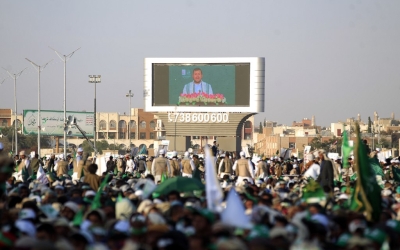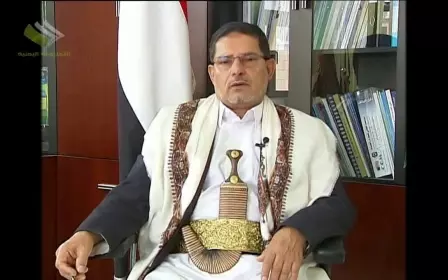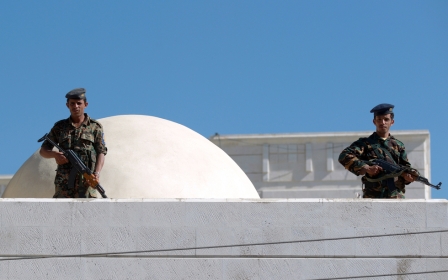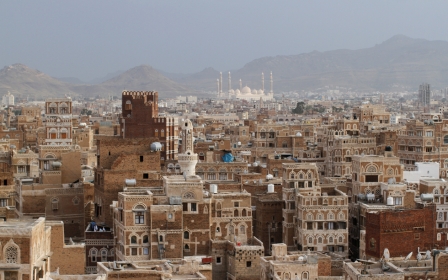Yemen's Houthis accused of targeting Bahai minority under 'directives from Iran'
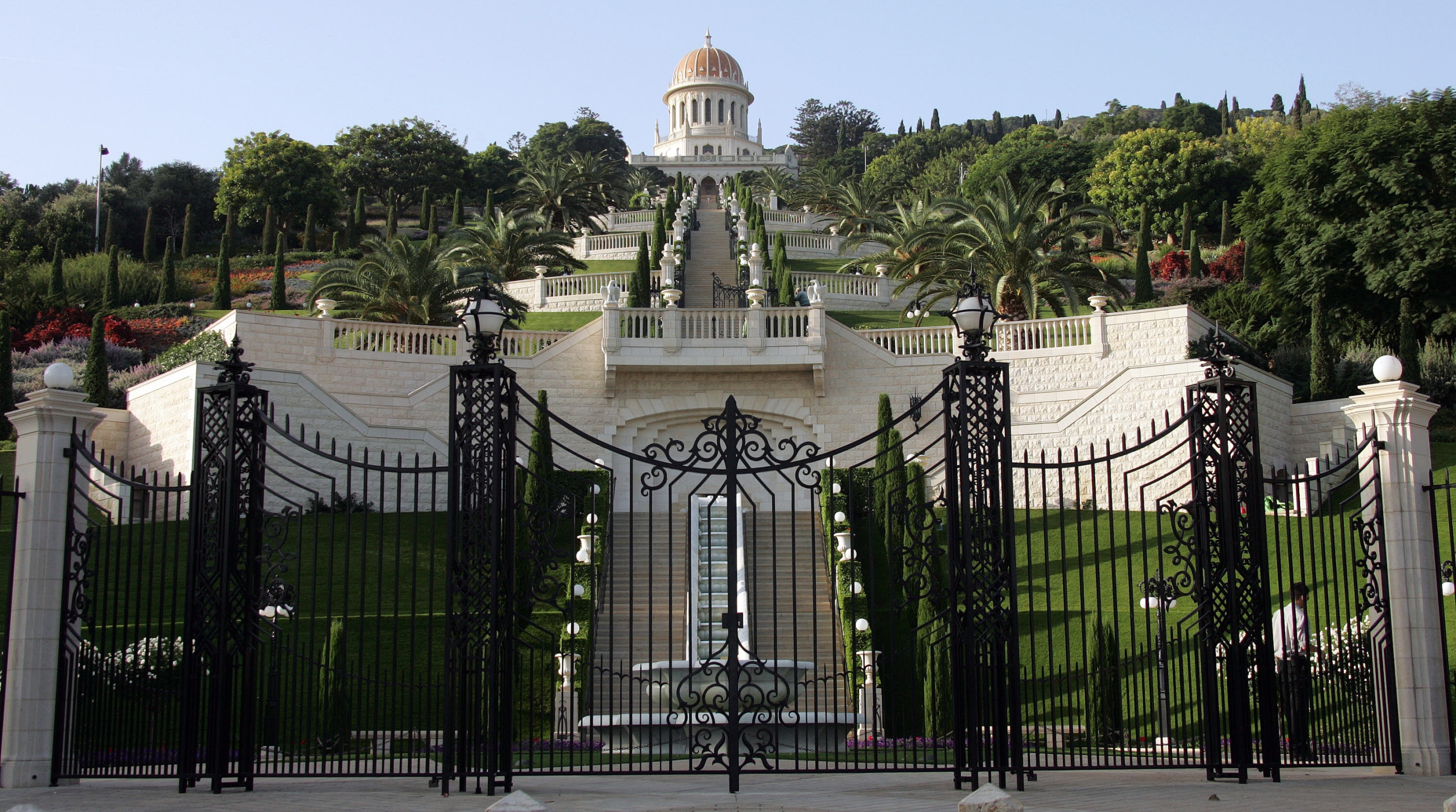
Twenty-four members of Yemen's Bahai community are set to attend a court hearing on Tuesday, the latest session in what the international Bahai community has denounced as a "a religiously-motivated sham trial".
The Bahai International Community (BIC), a group representing the faith with five offices around the world, has called for the charges - which mostly include accusations of apostasy and espionage - to be dropped.
The Bahais are a small religious community in Yemen, making up just one percent of the country's non-Muslim population.
In a statement on Sunday, the BIC accused the Houthi court of prosecuting the Bahai community under "directives from Iranian authorities" - an allegation backed by the United States.
Sam Brownback, the US ambassador-at-large for international religious freedom, voiced concern over reports that the court, based in Yemen's Houthi-controlled capital Sanaa, was again holding a trial against the group of Bahais, most of whom were charged in 2018.
New MEE newsletter: Jerusalem Dispatch
Sign up to get the latest insights and analysis on Israel-Palestine, alongside Turkey Unpacked and other MEE newsletters
At least six of the 24 have been held in ongoing detention.
"We urge [the Houthis] to drop these allegations, release those arbitrarily detained, and respect religious freedom for all," Brownback wrote on Twitter over the weekend.
'We urge [the Houthis] to drop these allegations, release those arbitrarily detained, and respect religious freedom for all'
- Sam Brownback, US ambassador-at-large for international religious freedom
Dozens of Bahai leaders and followers have been rounded up and imprisoned by the Houthi movement in recent years, on charges rights groups say are based on religious discrimination.
"The trial of the 24 members of the Bahai community on Tuesday follows years of arbitrary and violent detention" by the Houthi authorities, the BIC said in a statement on Sunday.
A member of Yemen's Bahai community due to be tried this week told the BIC that his Houthi interrogators had confirmed his arrest was due to his religious beliefs.
"It's not just targeting a few people," he said as he accused the Houthi movement of trying to systematically "eradicate the Bahai community" from the country.
Hamed bin Haydara, the Bahais' leader in Yemen, is among those facing trial. He was arrested in 2013 and sentenced to death by a Houthi court after being charged with apostasy and spying for Israel.
According to the BIC, Haydara was beaten and electrocuted and forced to sign documents while blindfolded which accused him of being a "destroyer of Islam and religion".
Haydara has filed an appeal that remains active in the Houthi court.
While the Houthi movement says its detentions of those hailing from the Bahai community are based on charges unrelated to religious freedoms, much of the international community disagrees, accusing the Houthi movement of religious persecution and regularly calling for all charges to be dropped.
On Iran
Accusations that Iran has a hand in the detention and prosecution of the Bahais on trial in Houthi courts stem from a long history of Iranian links both to the Bahai community and the Houthi's military campaign in Yemen.
The Houthi movement, fighting against Yemen's internationally recognised government since 2015, has long been accused of being supported by Iran.
Saudi Arabia and its allies, including the United Arab Emirates (UAE), have been major backers of the Yemeni government and have accused Iran of arming their Houthi rivals, a charge both Tehran and the rebels deny.
The ongoing war has devastated Yemen, with an estimated 80 percent of the population - 24 million people - requiring some form of humanitarian or protection assistance, according to UNOCHA.
Regarding Tehran's connections to the Bahai community, the religion was founded in Iran in 1844, and was banned by the government in 1982.
While Iran has allowed freedom of religion for Christians, Jews and Zoroastrians, as a religion founded after Islam, the Bahai faith remains banned under Iran's laws against heresy.
In October, the US Commission on International Religious Freedom (USCIRF) similarly linked the Houthis' treatment of Bahais to Iranian influences.
"Iran must immediately cease its exportation of religious intolerance to Yemen and the Houthis must end their persecution of Bahais, immediately drop all charges against members of that community, and set free Bahais who have been unjustly imprisoned," USCIRF Chair Tony Perkins said at the time.
The USCIRF also said it was alarmed over reports that a Houthi court in Yemen might deport and confiscate the assets of its Bahai citizens.
Bani Dugal, the principal representative of the BIC, on Sunday said the group was still very concerned by the possibility of those on trial having their assets seized.
"The Houthis must cease the financial extortion they are inflicting on the Yemeni Bahais by confiscating and attempting to seize properties belonging to all of the accused as a result of the trial," Dugal said.
The US designated Yemen's Houthi movement in December as an "Entity of Particular Concern" for violations against religious freedom.
Middle East Eye delivers independent and unrivalled coverage and analysis of the Middle East, North Africa and beyond. To learn more about republishing this content and the associated fees, please fill out this form. More about MEE can be found here.


